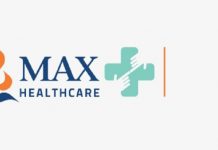- Texas, Alabama, and several other states are canceling mask mandates and allowing businesses to open at, or near, full capacity.
- Elected officials cite the FDA’s emergency approval of three COVID-19 vaccines as well as emerging therapeutics as rationale for the easing of restrictions.
- Health experts argue that ending the mandates early could lead to a fourth wave of cases and hospitalizations as well as the possible emergence of new SARS-CoV-2 variants.
All data and statistics are based on publicly available data at the time of publication. Some information may be out of date. Visit our coronavirus hub and follow our live updates page for the most recent information on the COVID-19 pandemic.
On March 2, the governor of Texas announced the state would be ending its mask mandate and opening businesses back up to 100 percent capacity.
Mississippi and Alabama followed suit soon after, joining a couple other states — Iowa and Montana — that recently tossed away their mask mandates.
Thanks to the recent Food and Drug Administration (FDA) emergency approval and rollout of three effective COVID-19 vaccines, many elected officials see the light at the end of the tunnel.
Health experts, however, criticized the Texas governor’s announcement, questioning why the mask mandate would be lifted during the most critical point in the pandemic.
Ending preventive measures too soon could jeopardize the final stretch of the pandemic and possibly lead to another spike in cases and new virus variants, disease experts say.
What’s going on in Texas?
Texas Gov. Greg Abbott announced March 2 that mask mandates are no longer needed because of the advancements made with vaccines and therapeutics, as reported by NPR.
“Make no mistake, COVID-19 has not disappeared, but it is clear from the recoveries, vaccinations, reduced hospitalizations, and safe practices that Texans are using that state mandates are no longer needed,” Abbott stated.
Abbott also said the state would be opening businesses back up to 100 percent capacity.
Soon after, Mississippi went public with plans to do the same.
Experts agree it’s too soon to relax protocols
Infectious diseases experts largely agree it’s far too soon to take a hands-off approach to masking and physical distancing.
“We are right at the cusp. It’s not now, at the last leg of the race, that we want to now give up or mess up. We have to finish the race,” said Dr. Daniel Fagbuyi, an emergency physician who served as a biodefense expert in the Obama administration.
Only 13.6 percent of Texans have been vaccinated with one dose and 7.5 percent with two doses, which is far from the level of vaccination we need to achieve herd immunity (which is about 70 percent).
More than 519,000 people have died from COVID-19 in the United States, 45,000 of whom were Texans.
“On the day of Governor Abbott’s announcement, 275 Texans died. The trend may be better, but is that a good day? These deaths are especially sad because the end is clearly in sight,” said Brian Castrucci, DrPH, an epidemiologist and president of the public health nonprofit de Beaumont Foundation.HEALTHLINE RESOURCESUntil you get through this, count on our support
In difficult times, you need to be able to turn to experts who understand and can help strengthen your mental well-being. We’re here for you.READ MORE
What are the risks of letting our guard down now?
The most obvious threat is that Texas could see a fourth surge this spring.
Throughout the pandemic, we’ve observed how an uptick in cases triggers a surge. After cases peak, they eventually drop off before spiking yet again.
“Ending practices that have contributed to better outcomes places the state at increased vulnerability,” Castrucci said.
Some models are predicting a fourth wave will strike around May as the SARS-CoV-2 variant identified in the United Kingdom (B.1.1.7) becomes more widespread.
If people stop wearing masks and ignore public health protocols, they put both themselves and others at risk.
That potentially “means a surge on our medical system, and that means limited resources for people who are sick and those who have other ailments, such as strokes, heart attacks, a fracture, a car crash,” Fagbuyi said, noting this could lead to more lockdowns.
The other big concern is that unchecked transmission could lead to the emergence of new virus variants, according to Fagbuyi.
“There’s an increased likelihood of having more variants and different types of the virus that then can undermine our responses and put us back in the same situation and maybe even worse,” Fagbuyi said.
Where are we with therapeutics?
Though scientists have made incredible advances in preventing and treating COVID-19 since it first struck in early 2020, we still don’t have a cure.
“Therapeutics are en route and on the way, but don’t get it twisted: The monoclonal antibodies, based on new data, they’re not being as effective against the variants,” Fagbuyi said.
Monoclonal antibody therapies have been the go-to resource for treating high-risk, hospitalized patients with COVID-19.
We don’t have antivirals for COVID-19, and the best protections we have are the vaccines along with personal protective gear and physical distancing.
Science has shown that mask wearing, handwashing, and physical distancing are effective ways to prevent COVID-19 transmission.
“If we can have leadership in place and advocacy that ensures that science is put first, we can see this to the end,” Fagbuyi said.CORONAVIRUS UPDATESStay on top of the COVID-19 pandemic
We’ll email you the latest developments about the novel coronavirus and Healthline’s top health news stories, daily.Enter your emailSIGN UP NOW
Your privacy is important to us
We can build the economy back up safely
There’s no denying that small-business owners and people across the country have been struggling to stay afloat during the pandemic.
Castrucci said it’s important to get students back in school, to support businesses, and to help communities rebuild their economies — and there’s a way to do it safely.
“We can reopen while also continuing necessary precautions, and that means washing hands, maintaining social distance, wearing masks, and avoiding crowded spaces with limited ventilation,” Castrucci said.
Normalcy won’t return until most people are immune through a combination of vaccination and natural immunity from infection.
Through mass vaccination efforts, we’re on our way there. Giving up now could prolong the pandemic and lead to even worse outcomes.
“To put it in football terms, revoking the mask requirement is like dropping the ball at the 1-yard line just before reaching the end zone,” Castrucci added.https://45cebf796cdbd28e6d803b136df1101c.safeframe.googlesyndication.com/safeframe/1-0-38/html/container.html
The bottom line
On March 2, the governor of Texas announced the state would be ending its mask mandate and opening businesses back up to 100 percent capacity.
Mississippi and Alabama followed suit soon after.
Health experts criticized the governor’s announcement and worry that lifting protocols now could lead to a fourth surge and make way for new SARS-CoV-2 variants.












